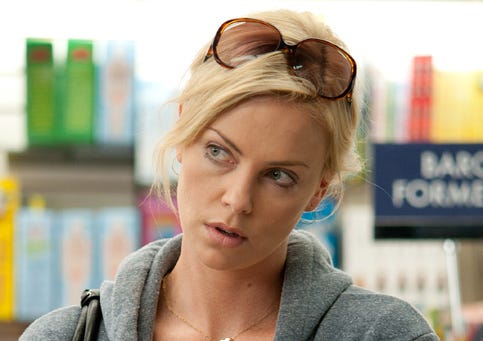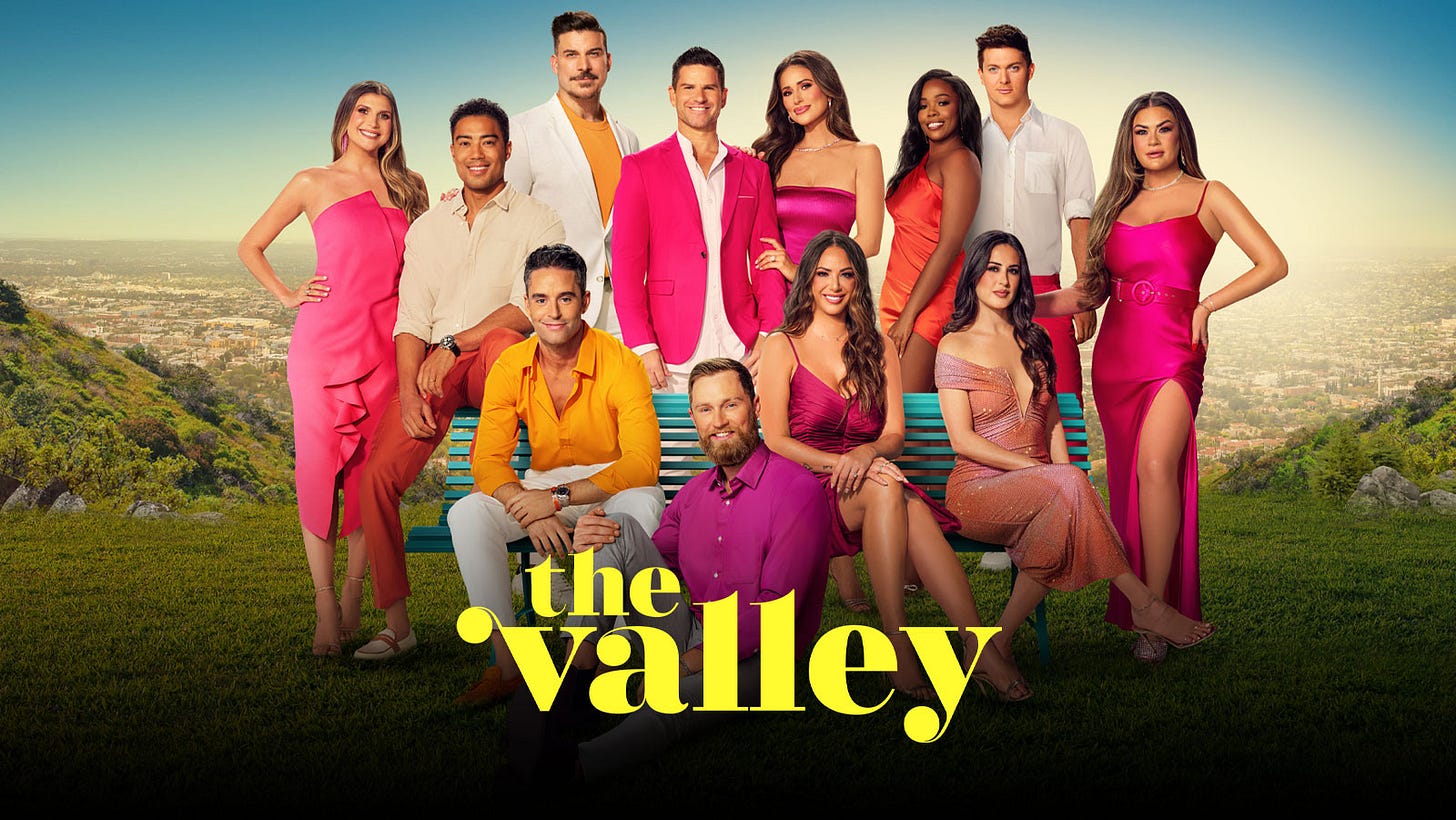A few months ago, I revisited Juno. A modern masterpiece (fight me), I imprinted on the film at 17 and have carried a soft spot for it ever since. Regressive politics aside, the movie carried a new weight when I watched it in 2024.
For the uninitiated, Juno stars Elliot Page as Juno MacGuff, a teenager who accidentally becomes pregnant and decides to give her baby up for adoption to a successful, glamorous couple in Saint Cloud, Minnesota. When I was 17, I didn’t care about the couple at all— the lives of adults were remote and mysterious— I was worried about college and getting a job. Rewatching, I found myself transfixed by the crumbling marriage of Mark and Vanessa Loring.
I famously love both divorce stories and marriage-in-crisis stories. The dissolution of a marriage evokes a full range of human emotions— longing, expectation, loss, hope, disappointment, grief.

The casting is pitch perfect: Jason Bateman stars as Mark, a former rocker turned jingle composer. Bateman’s ability to turn on an edge—from affable to sinister, from charming to leering—is key here. Jennifer Garner’s Vanessa is the human embodiment of motherly wisdom, perfect in both her palpable heartbreak and exasperation.
Diablo Cody is famously Gen X, but I found Juno to be a cautionary tale for Millennials. Vanessa and Mark’s marriage begins crumbling when the audience realizes Mark is trapped in an eternal adolescence, visibly demonstrated via a sartorial unraveling: when we meet Mark, he’s the J. Crew embodiment of Middle Aged Dad, an adult ensconced in a sweater set and chinos. After spending a few months hanging out with a pregnant 16 year old, he’s back in band tees.
Mark doesn’t know if he wants to become a father because his dreams haven’t come true yet: his house, his job, his wife, his marriage, all of them pale in comparison to the childish fantasy of rocking out in front of a crowd. Vanessa is repulsed by the man she married: he’s a child, yes, but more importantly, he’s a loser.
When I posted about Millennials being locked in a form of arrested development, many of the comments were explanations but not refutations: yes, we’re a generation that’s obsessed with Disney and Marvel and Star Wars and Harry Potter but we also can’t buy houses and childcare is expensive and we’re being crushed by student loan debt!!! All of those things can be true at once. It’s simply fascinating that in 2008, the scariest thing that could happen was finding yourself married to a man who was obsessed with his comic book collection and his vinyls and then millions of people grew up to be… not too far removed from that particular vision of hell.
Diablo Cody presents another horror story in Young Adult. Charlize Theron stars as Mavis, a ghostwriter for a Sweet Valley High-esque expy. The contours of both her alcoholism and her loneliness are revealed slowly, then all at once. Mavis is a loser of a different flavor: she’s built an altar to an outward portrait of success (nice apartment, gorgeous face, cool job) but is spiritually empty. She’s cruel, locked in an eternal grudge match with the life she imagined for herself and the life she’s living, and letting that tension make her rigid and off-putting. Mavis shows up to her hometown ready to terrorize her former classmates, not realizing that everyone thinks she’s sad and weird.
Mavis isn’t a loser because her life is empty (it cannot be reiterated enough: she is a deeply unpleasant individual) but it doesn’t help that when she looks up from her particular hustle, the only person staring back at her is herself. Cody makes it a point to show that there are diminishing returns on a particular vision of 2011 girlbossery. The movie was an omen, but many of us didn’t know how to read the signs.
When it began, the original iteration of Vanderpump Rules was a portrait of Millennial stagnation. The original cast was composed of struggling models and actors trying to make it in Los Angeles while working at a restaurant during the day. While originally conceived as a showcase of Millennial striving, the show became a psychological torture chamber when both the cast and the audience realized that: a) these people would never make their dreams come true due to their self-sabotaging and disastrous personal lives, and b) their real lives were more entertaining than any acting role they would ever get.
The Valley (a Vanderpump spin-off no one asked for but we were blessed to receive) moves us beyond striving by asking: what happens after you get everything you wanted in your twenties? Every cast member on the show has crossed one of the unattainable Millennial thresholds: they all have houses, careers, and spouses. Four of the five main couples have children, and the fifth regularly discussed their fertility journey (Kristen Doute suffered a pregnancy loss in 2023 and is now very pregnant).
I find the show fascinating because so much of American society is built upon the idea that you’ll be happy when: when you get married, when you get the dream job, when you have a house, when you have a great group of friends. These people have it all and they’re miserable.

Of course, there is the issue of a self-selection bias. The average American doesn’t end up on reality television. Valley ringleaders Jax Taylor (a maniacal hothead who has cheated on every woman he’s ever been with) and Kristen Doute (the patron saint of suffering, a modern day Cassandra cursed to tell the truth and never be believed due to drinking too much and undiagnosed mental illness) were both fired from Vanderpump Rules in 2020 for separate scandals (Jax and his wife were almost married by an anti-gay pastor, he yelled at executive producer Lisa Vanderpump on camera while almost certainly under the influence, Kristen called the police on a Black woman in 2018, was fired in 2020, and has since apologized1).
As I discussed with Leigh Stein a few weeks ago, the era of the Millennial midlife crisis is here. Almost every cast member on The Valley is in their forties and acting out some sort of spiritual exorcism on camera after realizing that the one prescriptive life path sold to many of us (college, job, partner, house, kid) isn’t the end-all, be-all they thought it would be.
By the end of the first season, one of the main couples had separated and another was barreling towards a toxic divorce. Jax torpedoed his marriage because he couldn’t admit he was struggling with his addiction. Another cast member, Danny Booko, gets blackout drunk at every opportunity while his wife, weeping beauty queen Nia Sanchez, ushers him away from the glare of cameras because they have three children under three (soon to be four-under-four). Before the show started filming in 2023, Kristen and her fiance didn’t even live in the same state. She was planning on getting pregnant and raising their baby in LA despite Luke’s desperate wish to live on a farm outside of California.
On the season finale of The White Lotus, audience surrogate Laurie Duffy gave a rousing monologue that sent gay Twitter into convulsions:
And… when I’m with you guys, it’s just so, like… like, transparent what my choices were, and my mistakes. I have no belief system. And I… Well, I mean I’ve had a lot of them, but… I mean, work was my religion for forever, but I definitely lost my belief there. And then— And then I tried love, and that was just a painful religion, just made everything worse. And then, even for me, just, like, being a mother, that didn’t save me either. But I had this epiphany today. I don’t need religion or God to give my life meaning because time gives it meaning.
The three childhood friends presented refracted versions of fictional womanhood, each reflecting a specific life path and the tensions present therein. Successful actress Jaclyn Lemon (Michelle Monaghan) devoted her life to beauty and the pursuit of it, making her selfish, vain, and cripplingly dependent on male attention. Kate Bohr (Leslie Bibb), a judgmental people pleaser and pushover, finds herself subsumed into the life of her successful Republican husband, attending church and adopting conservative views.
Laurie, on the other hand, tried it all and found herself spiritually empty. She devoted 15 years to a law firm, only to be passed over when it came time to make partner. She married a man she loved (despite his being a loser) and came to regret it when they divorced and she was forced to pay him palimony. All of the life paths sold to her failed: dedicating herself to work didn’t get her what she wanted, dedicating herself to her marriage didn’t make her marriage work, and devoting herself to motherhood didn’t make her child behave. Laurie might be fictional, but I can pick up on a lesson when it’s being imparted.

At the season two premiere of The Valley, Kristen Doute said this about the second season of the show, unintentionally echoing a former Vanderpump nemesis:
“Life is finally happening,” she said. “It all came to this. Everything I had to go through was for a reason — so I could find [Luke], find our way, and now we’re ready to start the rest of our lives. It’s awesome.”
While I am excited for the new chapter of her life, I’ve learned enough to know that the cycle of constantly expecting, chasing, and attaining won’t make any of us happy. Like Sisyphus and his hill, sometimes the only thing on the other side of the mountain is more mountain. It shouldn’t be radical to discover that after getting married and having kids you can still lose your mind, get cheated on, get dumped, or suffer. The Valley’s strength lies in showing that sometimes, getting everything you ever wanted can be the beginning of a new nightmare.
Morality Slogans
This article about El*n Musk recruiting, impregnating, and terrorizing random women from Twitter is one of the scariest and most bizarre things I’ve ever read??? What do you mean we will never know how many kids he has?!
The Tactics Elon Musk Uses to Manage His ‘Legion’ of Babies—and Their Mothers (The Wall Street Journal)
The New York Times and The Cut both published pieces about the economic crisis we’re in: I wrote about it a year ago and had people in my comments saying I was hallucinating and that we weren’t in a recession. I’ve been calling it since people on Twitter/TikTok stopped going on dates and started sleeping over at each other’s houses (nap dates), but whatever. Both pieces attempt to address rising costs, inflation, and the sense that everyone on the internet is richer than we are.
Also, I knew we were entering a recession when Gwyneth Paltrow, Julia Roberts, Rooney Mara, Cameron Diaz, and Dianna Agron all got jobs. It’s so over for all of us.
I cannot reiterate how incredible Jennifer Garner is in Juno!! Every single facial expression, every gesture, and every line of dialogue is absolutely devastating.
Doute is divisive for this reason: I, personally have mostly forgiven her as I believe she has a good heart and is now much more medicated than she was in 2018. I do not expect anyone else to forgive her and I do not speak for the Black community and their valid feelings on her!






Your reading of Laurie's monologue is so interesting! I've been trying to process what I think about it (beyond generally feeling really sad for Laurie/Mike White's ideas about upperish middle class women), but this idea that Millenials are primed for a fantasy life at the same time they have very little chance of achieving it and are thus placed in a sort of perma aspiration that never develivers them to the stage of life where they might pause, and, like, get spirituality or live for something beyond themselves is really interesting. Totally different point--this really makes me think of beauty culture and the discussions about how you can't tell what an adult is "supposed" to look like anymore because of procedures and sunscreen, etc. Feels like there's something there to do with the blurring of age/arrival.
Another excellent piece - I've been meditating on the idea of prescribed life paths a lot recently as my work picks up momentum and I feel less tethered to the possibility of a traditional romantic future (husband + kids) than I ever have before. It's really freeing mostly because I DON'T know what's going to happen next & therefore I don't have this expectation that I'll Feel Happy When - I'm getting way better at just feeling happy and fulfilled now (aside from when I am up until 2 in the morning weeping over the fate of the republic)